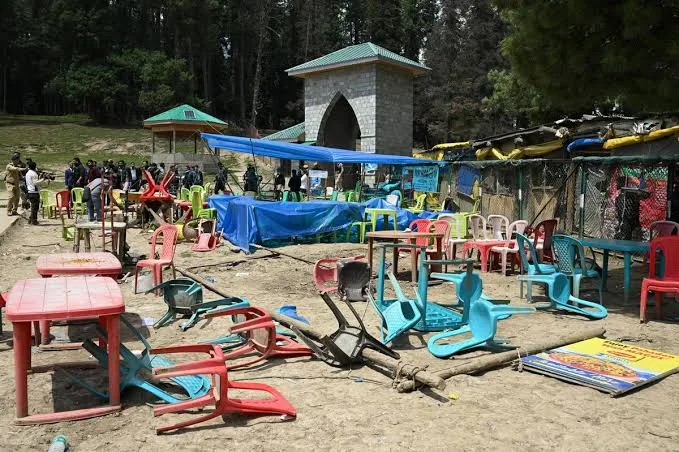China , shanghai- September 1, 2025
The Shanghai Cooperation Organisation (SCO) summit in Tianjin, China, concluded with a powerful statement against terrorism, as member states adopted a joint declaration that “strongly condemned” the April 22 terror attack in Pahalgam, India. The declaration, a significant diplomatic victory for India, was a central point of discussion during Indian Prime Minister Narendra Modi’s productive visit, which included key bilateral meetings with Chinese President Xi Jinping and Russian President Vladimir Putin. This condemnation highlights a united front among the regional bloc against global terrorism, aligning with India’s long-standing call for accountability for those who sponsor and organize such attacks.
Headlines:
* SCO Unites Against Terror: Tianjin Declaration Condemns Pahalgam Attack.
* India’s Diplomatic Win: SCO Statement Echoes New Delhi’s Stance on Cross-Border Terrorism.
* Modi’s Bilateral Engagements: Productive Meetings with Xi and Putin at SCO Summit.
* Global Leaders Take a Stand: Leaders Agree on a “No Double Standards” Policy on Terrorism.

The annual SCO summit, held in the Chinese port city of Tianjin, served as a crucial platform for regional leaders to address pressing security and economic issues. For India, the primary focus was to garner international support for its position on the Pahalgam attack, which tragically killed 26 civilians, including 25 Indians and one Nepali tourist. The perpetrators of the attack reportedly targeted Hindu tourists, using religious segregation to identify victims before the brutal killings. In response, India launched “Operation Sindoor” in early May, a military operation targeting what it termed “terrorist infrastructure” across the border. The SCO’s declaration, adopted by all 10 member states including Pakistan, directly addresses this tragedy, stating that the “perpetrators, organisers and sponsors” of the attack “must be brought to justice.”
During his address at the summit, Prime Minister Modi emphasized the need for the global community to adopt a “no double standards” policy on terrorism. He spoke passionately about India’s decades-long struggle with terrorism, referencing the Pahalgam massacre as a direct challenge to humanity itself. While the SCO declaration did not explicitly name any country, Modi’s pointed remarks, made in the presence of Pakistan’s Prime Minister Shehbaz Sharif, underscored India’s firm stance and evidence against state-backed terrorism. The declaration also condemned other recent attacks, including those in Pakistan, demonstrating a broader commitment to regional stability.
Beyond the formal proceedings, Prime Minister Modi engaged in a series of high-level bilateral meetings that were instrumental in shaping the outcomes of his visit. A highly anticipated meeting with Chinese President Xi Jinping on the sidelines of the summit was described as a step towards mending relations. The leaders reportedly agreed that India and China are “development partners, not rivals,” and emphasized the importance of maintaining peace along their shared border. They also agreed to resume direct flights and work towards a mutually acceptable resolution of the boundary issue, signaling a potential thaw in the long-strained relationship.
Modi’s meeting with Russian President Vladimir Putin also drew significant attention. The two leaders, known for their warm rapport, discussed ways to deepen their bilateral cooperation across various sectors, including trade, defense, and energy. Their discussions reportedly touched upon the peaceful resolution of the conflict in Ukraine, with Modi and Putin exchanging views on regional and global developments. The meeting reaffirms the enduring partnership between India and Russia amidst evolving geopolitical dynamics.
The summit’s final declaration also reaffirmed the SCO’s commitment to fighting separatism and extremism while highlighting the inadmissibility of using terrorist groups for mercenary purposes. The document stressed the leading role of sovereign states in countering such threats, a point that resonates with India’s emphasis on respecting national sovereignty and territorial integrity. The productive SCO summit, bolstered by India’s successful diplomatic push, has set a new tone for regional cooperation, marking a significant step towards a more unified and secure Asia.
